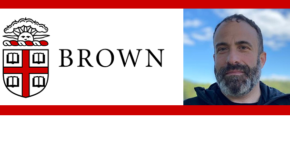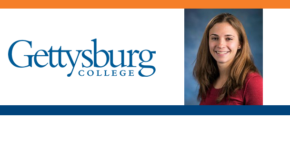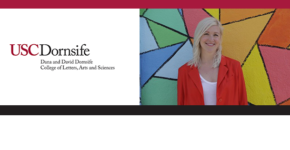Tag: Health
-

Jung-Ah Lee, University of California, Irvine – Caring for the Caregivers
How do we help the caregivers? Jung-Ah Lee, professor at the Sue & Bill Gross School of Nursing at the University of California Irvine, looks into this question. Dr. Jung-Ah Lee is a nurse scientist and faculty at the Sue and Bill Gross School of Nursing at the University of California, Irvine. Lee focuses on…
-

Marian Reven, West Virginia University – Aromatherapy and Substance Use Disorder
A simple way to help opioid use disorder patients may be at hand. Marian Reven, clinical education assistant professor in the health sciences department at West Virginia University, discusses how. Dr. Marnie Reven has a M.S in Nursing from Walden University and a PhD in Nursing from West Virginia University. Dr. Reven has over 400…
-

Sunmin Lee, University of California Irvine – Sleep and Chronic Diseases
Sleep is important, even more so if you have other health conditions. Sunmin Lee, professor in the department of medicine at the University of California, Irvine, explores the relationship. Dr. Sunmin Lee, PhD, ScD, is a Professor in the Department of Medicine, in the School of Medicine, University of California, Irvine. Dr. Lee is also…
-

Brandon del Pozo, Brown University – Gun Violence at Home and War
Just how dangerous is gun violence in some cities for young men? Brandon del Pozo, assistant professor of medicine and public health at Brown University, says going to war may be safer than staying home. Brandon del Pozo an assistant professor at Brown University, conducts NIH-funded research at the intersection of public health, public safety,…
-

Judith DeSena, St. John’s University – A Study of COVID-19 Lockdowns in Two Iconic Brooklyn Neighborhoods
There is still a lot to study from COVID-19 lockdowns. Judith DeSena, professor of sociology at St. John’s University, discusses the response of two neighborhoods in Brooklyn to the crisis. Judith N. DeSena, Ph.D., is a Professor of Sociology at St. John’s University in Queens, NY. and a resident of Brooklyn, NY. Her work focuses…
-

Lewis Davis, Union College – COVID on Campus
COVID rates on campuses didn’t always follow the socioeconomic script. Lewis Davis, Thomas Armstrong professor of economics at Union College, explores why. Lewis Davis is the Thomas Armstrong Professor of Economics and Chair of the Economics Department at Union College. He has over 30 peer-reviewed journal articles, with recent work addressing the religious, climatic, and…
-

Megan Benka-Coker, Gettysburg College – Evaluating Real-World Global Health Interventions
On Gettysburg College Week: How people cook in their homes can have consequences. Megan Benka-Coker, assistant professor of health sciences, examines one method with the potential to help cut down the risks in hard to reach areas. Dr. Benka-Coker is an Assistant Professor in the Health Sciences Department at Gettysburg College. She is an environmental…
-

Qian Yang, Cornell University – AI Tool Gains Doctors’ Trust by Giving Advice Like a Colleague
On Cornell University’s Impacts of A.I. Week: Getting people to trust A.I. can be a tricky process. Qian Yang, assistant professor in information science, examines how doctors became comfortable with using the technology. Qian Yang is an assistant professor in Information Science at Cornell University and Human-Computer Interaction (HCI) researcher. Her research expertise is in…
-

Kayla de la Haye, University of Southern California Dornsife – Uncovering the True Extent of Food Insecurity in the U.S.
On USC Dornsife Week: How many people are food insecure in the United States? Kayla de la Haye, associate professor of population and public health sciences, examines the data. Kayla de la Haye is an Associate Professor of Population and Public Health Sciences at the University of Southern California. She works to promote good health…
-

Elisa Trucco, Florida International University – The Impact of Social Isolation and Past Trauma on Mental Health
On Florida International University Week: Teenagers dealing with COVID-19 lockdowns had a tough go. Today on The Academic Minute: Elisa Trucco, associate professor of psychology and director of clinical training, keeps an eye on past trauma for pre-pandemic experiences. Dr. Elisa Trucco is an Associate Professor of Psychology and the Associate Director of Clinical Training…
